SHIFT HAPPENS | SEASON 1 • EPISODE 6
Maria Tibblin: Finding Strength and Power Amidst Despair and Fear
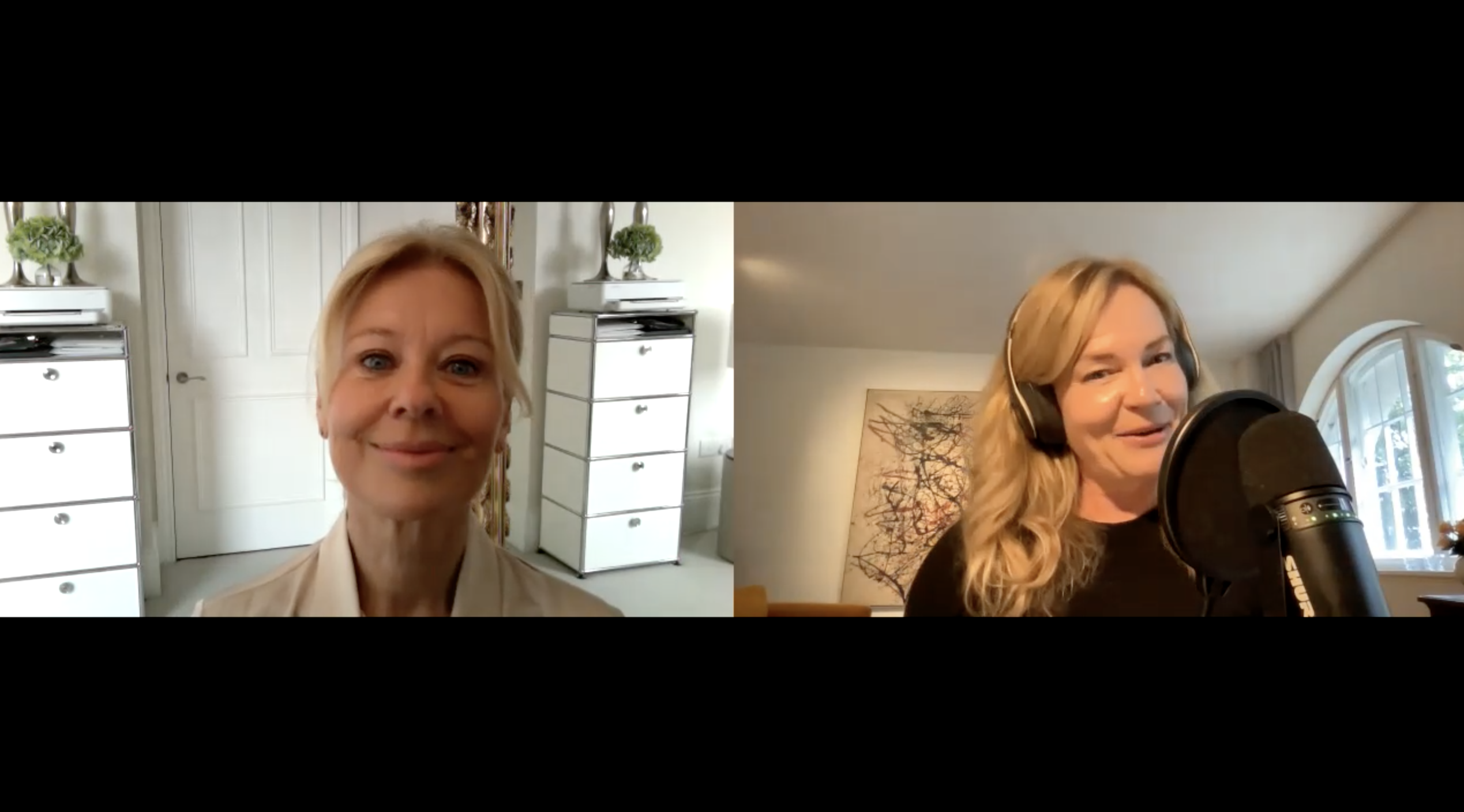
SHIFT HAPPENS is a Global Take on Women’s Turning Points and Pivotal Moments
This week’s guest, Maria Tibblin, is an interior designer and public health professional focusing on the often overlooked link between wellbeing and holistic design. On the podcast, Maria shares how she persevered when her 3-year-old daughter was kidnapped by her father and went missing for nearly a year. This unfathomable time shaped Maria as a woman, as a mother, and as a person. In reflection, she shares how she acquired strength and wisdom through a period marked by deep despair and fear.
Listen
About Our Guest
Maria Tibblin Ltd is a Medical Health promoting Interior Design Firm, based in London.
“I have long been a proponent of the integration of medical and health promoting facilities. I view this as essential to the ongoing delivery and maintenance of our healthcare globally with the goal of a sustainable health for everyone.”
Maria is an advocate about the pivotal link between wellbeing & holistic design, and how environments impact our health. She has spent her life and work supporting behaviors which help determine our health. She advises various sector industry leaders about how well-designed spaces promote and nurtures general wellbeing.
Maria has a long international career in both the Healthcare & Design industry. She has coauthored numerous research studies within preventive health and health economics. She held several global positions within medical marketing, clinical research phase FIH-IV, HIV & AIDS prevention strategies, public & medical health communications, treatment & strategy trends for Neurological diseases.
Maria is on the Advisory Board of The Global thinkers Forum and a Mentor of young adults at Athena40. She is also part of a project Women for Human Values, that will be shown at the UN Assembly in NY.
Maria is soon to be an accredited Jungian coach and her Biography will be published in 2024.
She was born and raised in Sweden but has lived and worked globally most of her adult life, she resides in London with her two daughters.
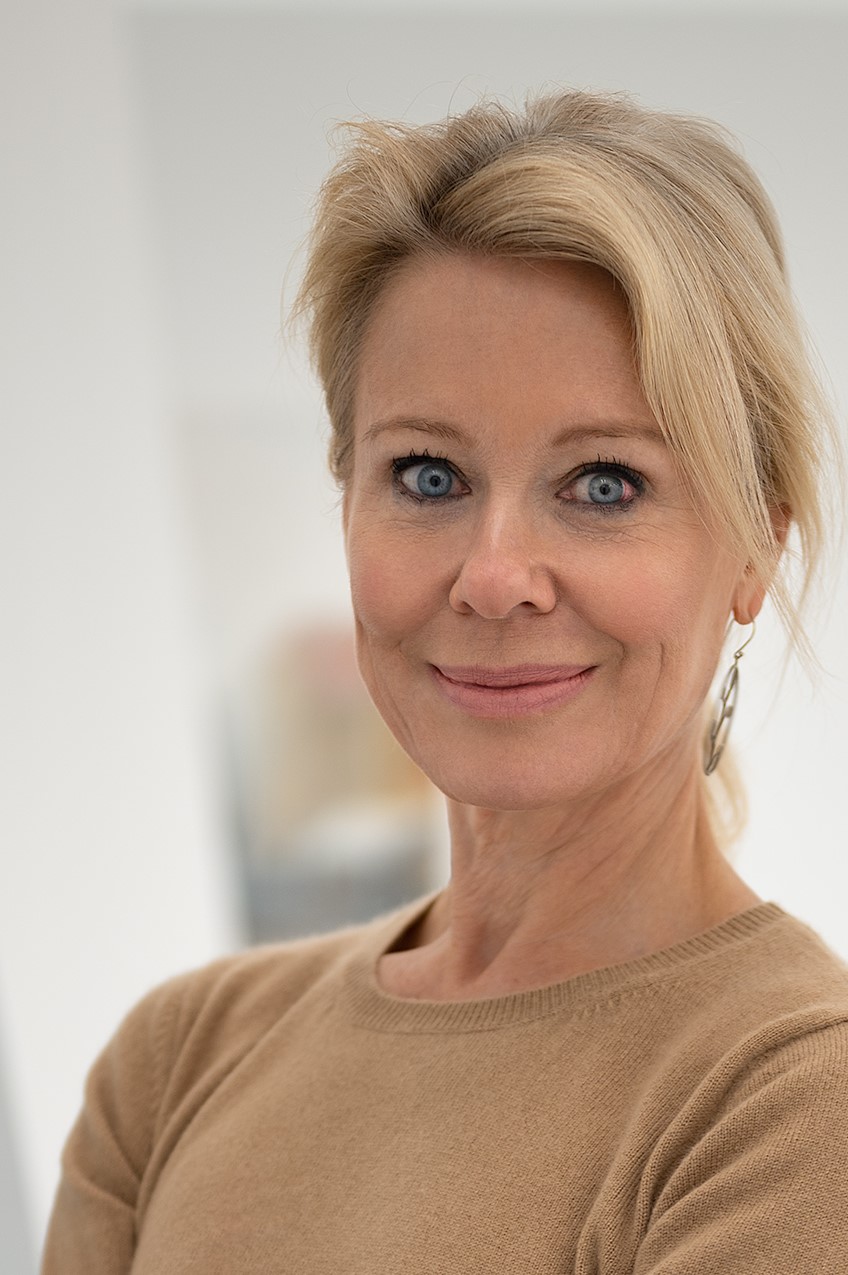
About Your Host
Claudia Mahler is a creative activist, with more than a decade of experience curating meaningful conversations for women in business, art and education in Europe and the United States.
She designs events for women’s empowerment that emphasize organic connection and conversation to complement existing professional development training in a variety of work environments.
She has 20+ years of experience in communications and PR in Europe and the East Coast of the United States.
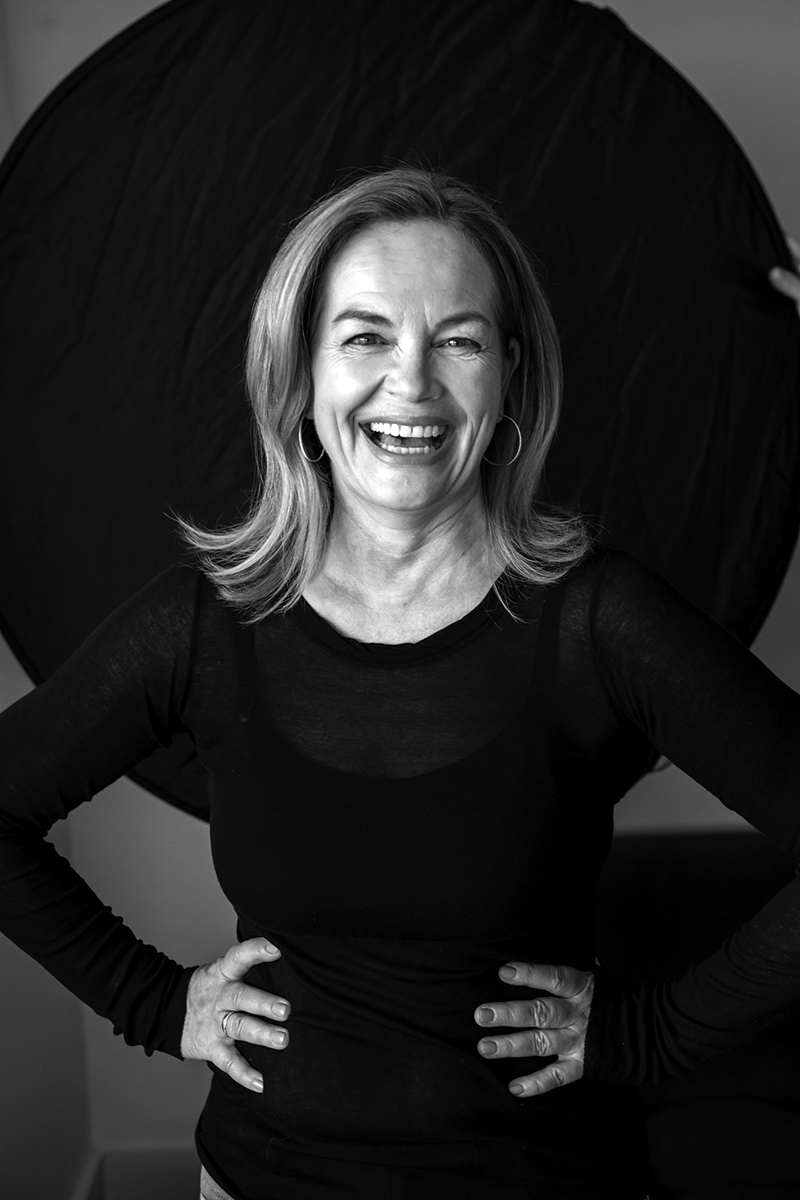
Transcript
Maria Tibblin on Finding Strength and Power Amidst Despair and Fear
Claudia: Hello, and welcome to Shift Happens. My name is Claudia Mahler and I am curious about how women made it through turning points in their lives and how they reflect back on them.
Too often, women just get on with it. The everyday, the duties, the expectations—too often, life-altering events are being swept under the rug as life must go on.
With Shift Happens, I want to create a space for women to pause for a moment and to share, to listen, and to feel heard. A space where we connect and talk about life and its pivotal moments—about the highs and lows, the challenges and the joys, about what has been gained and about how enriching change can be. Some things we hear are heavy, some are funny. They all put me in awe as they are honest and raw testimonies of life.
This podcast is a little window into the world. I invited women from all walks of life and various counties, countries and continents. I am in conversation with authors, business owners, artists, life coaches and change makers. All these women have their individual life story and much wisdom to share.
Today on Shift Happens, I’m in conversation with Maria Tibblin. She is the founder of Maria Tibblin LTD, a medical health-promoting interior design firm based in London.
Maria was born and raised in Sweden. She is the mother of two grown daughters, and has lived all over the world with many years in Switzerland. She serves on the advisory board of the Global Thinkers Forum, and is active as a mentor to young adults within the Athena 40 program.
Maria says about life and its pivotal moments: “I believe in growth and development, and that life is always in movement. I believe in embracing transformation with curiosity and gratitude.”
And I’m very curious about what she has to share on her life journey.
Welcome to Shift Happens, I am today in conversation with Maria Tibblin, who is joining from London. Hello Maria!
Maria: Hello Claudia, lovely to be here.
Claudia: Thank you for being here. So, Maria is originally from Sweden–born and raised in Sweden–she is the founder and owner of Maria Tibblin LTD, which is an interior design firm. And I love the focus of your company and your business, which is the integration of medical and health-promoting facilities, and the interior design of it, which I think is so necessary everywhere. In Europe and particularly in the U.S.. I mean, it’s just, sorry to say, but it’s a disaster there. So you have a huge market still to conquer.
Maria has been advocating for well-being and for the link between well-being and holistic design. You have been consulting with industry players, in this, with industry leaders, and you have also served in several global positions within the medical field, and medical marketing, clinical research phases, HIV and AIDS prevention strategies, public and medical health communications, and treatments and strategies in trends for neurological diseases.
You are very active in the advisory board of the Global Thinkers Forum, and you serve additionally as a mentor to young adults at the Athena 40 program. And maybe you can quickly explain that–you are also part of a project, Women for Human Values, that was shown at the UN Assembly recently in New York?
Maria: It will be shown. It’s not yet.
Claudia: Next year?
Maria: Next year, yes. It’s through Athena 40.
Claudia: Wonderful. If you could, what is that? Women for Human Values?
Maria: Yes. So it’s Elizabeth Filippouli, who is the founder of the Global Thinkers Forum, and also the founder of Athena 40. She has written a book, Letters from Women to the World. And it’s letters from incredible women around the globe that was written to someone that was important for them in their lives. Could be their mother, or another role model, or someone else. And these women, she has also photographed. So it will be more a visual exhibition that will be shown in New York, hopefully next year.
I was unfortunately a little bit too late to be part of the book, but that’s why I’m on this.
Claudia: The advisory board?
Maria: No, not the advisory board. In this exhibition, I will say, as part of this hundred women.
Claudia: That’s a fantastic idea.
Maria: Yes, it is.
Claudia: And it’s worldwide, correct? I mean, it’s women from all over the world.
Maria: Yeah, all over the world, women from many different walks of lives. Yeah, we all have someone that we look up to, or that we think about or that we are grateful for.
Claudia: And speaking of books, you also have something in the making. You have your biography that will be published, also next year.
Maria: Yes, it will.
Claudia: That’s fantastic. So, you have to tell us a little bit more about that later when you share your pivotal moments and turning points in your life. Before we get into it, I wanted to ask you a few quick prompts.
Flat or sparkling?
Maria: Okay. Sparkling.
Claudia: Apples or oranges?
Maria: Apples.
Claudia: Beatles or Stones?
Maria: Stones.
Claudia: Tea or coffee?
Maria: Coffee.
Claudia: What is your most treasured possession?
Maria: Do you know what? I would say my inner creative voice, because I just love it. No one can take it. It’s mine.
Claudia: Yeah. If you were to be reborn, who or what would you be?
Maria: I actually like to be a woman. So, I would like to be reborn again as a woman. Yes, maybe in a different country, but I would like to continue my journey.
Claudia: The journey as a woman. Yeah. You are alone on a deserted island. There’s just one thing you can take. What is it?
Maria: Music.
Claudia: Beautiful.
So now that we know you a little bit better, I would like to go right into your story. You shared a few bullet points on your pivotal moments, becoming a mother and leaving your abusive husband, and moving to London with two young daughters. Your career changed a whole lot. Please, the floor is yours.
Maria: Okay. So, I’ve had quite a few pivotal moments. Of course, all of us have had those. Maybe I will take three or four of them.
So the first one, actually, that would be when I left my home country, Sweden. That was pivotal because… it was a big moment, to leave your origin. I left to Switzerland, which actually really aligned with my values and my beliefs, but it was important for me because that’s where I had my career, and the beginning of my adult life, I could say. To establish that. So that was actually the first pivotal moment that has been forming me, a bit.
The second one, that has been the most important one, was also happening in Switzerland. And that was becoming a mother to two daughters. And that just brought me to a new level of purpose that just… you’re thrown into something. I really felt that change of purpose in my life through becoming a mother.
The third one was then a critical moment, and that was when my eldest daughter, who was only three years old, was kidnapped by her father, and she was nowhere to find for nearly a year. So that was a dramatic time in my life, and it has shaped me as a woman, as a mother, as a person. I felt despair, and fear, and total powerlessness. Although, I did discover how much strength I have within me, in this aloneness. I thought I was powerless, but the strength that you can have as a mother… it just comes from somewhere… endless and tireless search for your child.
Claudia: Yeah, I mean, it’s, of course, this is shocking, yeah? It just goes through my head, like how do you make it through a whole year without your child?
Maria: Yeah. I mean, even today, 20 years later, I can still feel that total despair and helplessness. You literally just want to scream. You don’t know what to do. I can still recall that feeling twenty years later. So of course, a critical pivotal moment in my life, and also, I found that strength within me. I have it. I am a survivor. I have a power in me, despite this absolute frantic situation. I learned a lot about myself during that time.
Claudia: Yes, I can only imagine. And then your daughter came back to you. That also must have been a very challenging time for…
Maria: It was very challenging. And do you know what I’ve been thinking about lately, is that everybody kind of thought, “Oh, it had a happy ending.” And it did have a happy ending, but there was also a beginning to heal. And our surroundings did not really recognize that.
Everybody just expected you to be happy because she was back, which I was of course, but it was the beginning of something new, to heal and to build a new little family. So that was one moment of course and a shift in my life.
Then I would say actually, if I would mention one more, it’s where I am right now. This is also a shift happening in my life right now, but it’s more internal and very personal and emotional. It’s a great time in my life now, all of the development and growth.
Claudia: Despite it’s very personal, can you share a little bit?
Maria: Yes, of course I can. I think it’s finding my inner voice, my inner self, it’s a self-discovery that is very deep right now. It’s so fascinating to get to know and to dwell into, “Who am I? Who am I actually? What is my vocation? How do I want to live my life? This is definitely a shift.
My daughters are almost out of the house, I would say. Well, they are out of the house, but still there is this little, you know, they still come home and want to be cared for, of course.
Claudia: Yes, of course.
Maria: But it’s still now a shift, being an adult woman and figuring out how I would like to live my life and who I am.
Claudia: Yeah, I mean, in Asia, this second part of life for a woman, it’s actually called “second spring.”
Maria: Yes, and it’s true. It’s really true. It’s really true. Yes. I think I have also forgiven those people that hurt us very much, and that is a relief, or it feels good to forgive.
But there’s also one thing that I feel really strongly, and that is– I forgive them, but this is actually my life. It’s my life. I choose to live it the way I want to live it, fully, and rich, and that is something that’s really empowering. To realize, actually, it’s my life. My children have their lives. This is something that I think a lot about right now. I feel energized, actually.
Claudia: So, what happened with your daughter, that’s, you know, I mean, a huge, almost unspeakable, unfathomable experience. Is that something that motivated you or inspired you also to write your biography?
Maria: Yes, definitely. It’s been lingering within me for many, many years.
I started to write it probably about fifteen years ago, but it was too close to the traumatic happening. Also I wanted to protect my children. I didn’t want… So I started it, but then I let it rest. It’s been coming up over and over again, and we were very close to also making a film, actually, but then my daughters were not ready for that. They were still in high school, so I stepped back again. And then it came again, and then I talked with my daughters because I wanted them to feel okay with it. That I would expose myself, but also them, partly, of course.
They were happy because they are also girls, and modern women, and global women. They actually said, “yes, of course, mom.” It’s my story, but they are, of course, also part of it, but still my story.
So that is not only that pivotal moment of the abduction of my daughter, it’s also my own story from childhood, which also was quite traumatic. It’s actually a story about a girl and a woman and a mother. The happening with the abduction was the start of writing the story, yes.
Claudia: Do you think this very intense challenge of healing, which is also something that I want to address with this podcast, because shift happens. We all go through pivotal moments, and the older we are, the more of those turning points and pivots we have lived through. We get on, and we sometimes forget to pause. Whether it’s been a happy shift or a more difficult, challenging, or even traumatic shift, it needs time and space to pause and let it sink in.
Maria: Yes.
Claudia: To also become self-aware, not self-absorbed but self-aware–how did I get through this? Often life is so fast, and especially women tend to swipe it under the rug and just get on, because there’s so much duty and there never seems to be time.
Maria: That’s so true. And this time, in this place in life, maybe we take more time to reflect. But also, which we will come maybe to later, is that’s why I think these conversations that you’re having are really powerful…
Claudia: Thank you.
Maria: …where we can be authentic. I think that is something that’s really important, that we all have a voice, and we should be more genuine and authentic in our conversations. This is really a good opportunity.
Claudia: Yeah, thank you. you. I totally agree. I mean, what are we here for? Let’s not waste more time.
So the healing aspect, do you think that this also brought you into this sphere of really thinking about the medical background in your profession? And to link it then with the interior design? Can you tell a little bit more about how you came into that field? What are you looking for when you are designing medical spaces? What’s your philosophy, and what do clients like?
Maria: When my daughter came back, I continued to work within clinical research for some years, but it wasn’t sustainable for us as a little family. At that time, I did travel quite a lot. I took one year off, and then I kind of thought, “What shall I do? What shall I do that would be a balance, to take care still of my two young girls?”
I looked a little bit into myself, had some guidance… I have always been a creative person. Training as an interior designer is quite fast-paced. People started talking about well-being and spaces, and then I actually realized, “Well, I have both expertise,” and then I thought, “Well, this is really valuable, quite unique, actually.” I got my first project and from there–for a clinic–and from there it started that I felt how important it is to make the environment within the healthcare industry safe, nurturing…
My first profession was a registered nurse. I remember when I worked in the ER, which was my daily life, a patient comes in hurt, and scared, and I thought with these plastic chairs and neon lighting, that’s not very comforting, neither for them nor for their relatives or family or friends who came with them.
I already thought about it quite early on, and now it came back to me somehow. Myself also being a patient at different clinics, I’ve thought many times about the environment that was not very nurturing or welcoming. I take it from a very holistic perspective. I have healed myself, actually, through making my own spaces comforting and healing. I’ve moved around quite a lot in the world, and everywhere I’ve lived I’ve always–quite fast–created or designed or decorated my home from the perspective of all our senses, with the scent, with the colors, with materials, with music, with literature and all that. I know that it can heal, and make you feel nurtured.
When I do a medical clinic, I also think about the patient journey. How does it feel to just enter that space? The journey from entering the space until they leave through the whole clinic… and meeting their first staff, and doctor, or dentist, or whatever it is and then until they leave. Absolutely all senses should be felt.
Claudia: A bit more concretely, what would you think are the five most important things we need to install in our home or space to feel not only comfortable, but to have a healing effect?
Maria: Oh, I would say material is super important. It of course depends on what kind of energy you want to feel in different rooms, but material because touch is the most important sense we have. If you sit on a sofa, maybe you touch it, how does it feel? Or the cushion… or so material is important, color of course is important as well…
All the five senses! Scent, how does it smell? I mean, we know about new baked rolls, like how good that smell… or you know, a scent can bring memories.
Claudia: I heard once from a real estate person that if an apple cake was baked before you show the apartment…
Maria: Yes, yes, that’s certainly true.
Claudia: …People like it better because it’s such a homey, comforting. comforting, almost archaic scent.
Maria: Exactly. Yeah. So, material, color, scent, and then of course, sound could be calming, but it could also give you the energy that you like. Visual, of course, green, natural light. There’s a lot of things to think about, but actually, quite simple in a way.
Claudia: What’s your favorite color?
Maria: Just straight up, I would say blue, but it’s probably… I’m very sleek in my colors. I don’t have so much colors when I decorate. It’s very kind of sleek, but I like blue. I like that very much in different tones, of course.
Claudia: And your favorite scent?
Maria: Jasmine.
Claudia: Do you have any advice for your younger self?
Maria: Yes. I was thinking about that actually. Because I was thinking about my daughters just the other morning in bed… I just had a thought…
I think the advice for my younger self would be… because when we are young, we’re so much thinking about who to become. You know, becoming something, okay? How do I present myself in the world? I would say maybe to ask the question a little bit more, why am I doing things? What does my inner voice say? To listen more inwards. It’s difficult when you’re young. I know that. But that would be some advice. Maybe not run so fast, stop for a while, and listen. Already, when we’re young, we have an intuition. But life has so much to do, so much you want to try out.
And then one more thing, look for your tribe. Is this tribe my right tribe? When we’re younger, it’s so important to belong to a group or a tribe. I think to ask yourself, “is this my tribe?” So that would be probably something that I would have said to my younger self.
Claudia: What do you say to your older self?
Maria: Oh, to my older self. Well, now it’s more the question, “who am I?” It’s not so much, “who do I want to become?” There’s a big difference between being and doing. People are asking so much, “who are you?” And then people answer with what they’re doing. I think there should be a balance between that.
Claudia: The “doing” is also, in a way, very materialistic.
Maria: It is.
Claudia: It kind of deflects from the “being.”
Maria: Exactly. I think now, of course it’s a balance between doing and being, but I think I’m more aware in my being now.
I have to say something, because this is quite interesting… Many years ago I was in a course or training in public speaking, and they asked us to write a letter that we should present about our 90th birthday. I reread that, I saved it. It was paper, you know? It’s a long time ago. I wrote and presented that I was in Italy, and I had all my grandchildren around me sitting on my lap, and I was sharing all these stories about my life with them. They had eyes wide open listening to my life stories. Almost like I was sitting there, very comfortable, thinking about my life fully lived. And sharing the stories. I think that is something that I embrace very much now.
Claudia: Yeah, that’s a beautiful image. Lovely. Thank you for sharing that. Yes. And so you are working with a lot of.
So, you are working with a lot of women, and you are advising young women, and that’s a project that is very dear to you, so, what do you have in general advice for women at the moment? Younger ones, older ones?
Maria: Maybe I can say this. I have been studying Jungian psychology the past year, and I am to be a certified Jungian coach at the end of this year. During this training, I had to have training clients who are mainly women. I’ve been guiding them–I don’t want to say advise–but I’ve been guiding them and supporting them in the complexity of life. What I’ve seen, and what I feel, is that there are so many answers within ourselves. It’s just trying to find them, to trust ourselves a little bit more. Usually, we do know, but it’s just to dare to go in there and ask yourself, “how does it feel?” Our intuition is very often right. Stop for a moment and ask yourself. Feel it, listen to it.
That’s what I’ve seen now with the clients that I currently have and have had over the years, that when I help them to tap into that inner knowing, it helps a lot. To find the compass again.
Claudia: Yeah, of course. That’s good. It’s an awareness that is so necessary, but also so difficult. We live in a time where we are so distracted, and everywhere, and everything happens so fast, and all these things that go into our brains and souls and beings…
Maria: Yeah, there’s so much external.
Claudia: It’s like you say, where do you find this compass again?
Maria: Yeah, exactly. It doesn’t need too much, actually, just asking the right questions. Also to just, “how does it feel?” “Where do you feel passion?” “Where do you feel good, and where not?”
If that was an answer to your question.
Claudia: Yeah, I mean it’s a big question. That’s an interesting recount of your experiences.
So, what energizes you?
Maria: Oh wow, music, absolutely. That’s the first one. And reading something really beautiful. I can reread some sentences over and over again, and just become… wow.
Nature, nature is a “wow” for me, absolutely. Which nature? Ocean, a little bit rougher ocean, where I can really hear the sound of the waves and the salty air. I also like forest, with the different smells, the different greens…
So, music, nature, and really well-written literature.
Oh! One more thing, animals. I love dogs, and I love horses. Definitely. That can bring my heartbeat up quite a lot.
Claudia: And how do you calm your mind? I’m sure you’re very busy and traveling a lot.
Maria: I’m good at calming my mind, actually. I have meditated for quite a few years now. For me, meditation is also just to sit still. Maybe I shouldn’t call it meditation, it’s just to sit still and quiet and just… it could be ten minutes in the morning, I have my little chair. When I haven’t done it in a couple of days, I feel an urge to do it, to ground myself again, because that’s when I’m calming myself.
If I’m grounded and calm, then my creativity can come. If I’m having too much or running around too much, I can’t reach it. I would say I’m searching for still moments. That’s how I calm myself. If I’m really nervous, maybe I try to take some deep breaths. That’s quite calming.
Claudia: It’s always… I mean, the out breath is always longer than the count of the in breath, right?
Maria: Yes. Four, two, seven. That’s the number I have in mind.
Claudia: It’s so powerful, breathing. Unbelievable.
Maria: It’s unbelievable. Also, if I’m really irritated or angry, I go out and run. I know from a medical point of view that stress hormones are relieved when we do exercise. I don’t want to have those stress hormones circulating in my blood, so out with them. Sometimes, it’s better to run first, and then you can sit calm.
Claudia: All right. I keep that in mind. So, what’s ahead for you? We know the book, and in general, what lies ahead for you?
Maria: I’m really excited. So, it’s the book of course. And with the book, I hope to create a platform and take the stage, take the global stage, and support and share my background and what I have learned, and support other women.
Claudia: Other women that have been in abusive relationships, or?
Maria: Yes, definitely that, and also about abduction, but also generally in life, I think. It brings so many questions, the trauma, and how to survive. Where I am today, I’m in a good place today, and how can I through that sharing support others to take charge of their life? And feel gratitude for the beautiful things that are offered to you in life?
And then, my new endeavor, I’m going to be a Jungian coach, and establish a private practice. Absolutely, that’s something that I really look forward to. I’m also now doing a training in Jungian dream work, so I really like to work with dreams. I myself work with them, and I think it’s fascinating to know your unconscious, and to learn from that. To listen to this part of yourself–your conscious and unconscious–to be able to learn from what’s going on through the dreams. It’s fascinating.
Definitely, the practice of Jungian coaching, and the book, and then one more thing…
Claudia: Even more!
Maria: Yeah, even more… If I’m allowed to talk about this… and that is love. Love, I mean I’m filled. I have a lot of love around me, especially from my daughters, but also friends, you know, and family, but still that mature romantic love, I look forward to it. That’s something that I wanted to say. I think we can talk about it.
Claudia: Yeah, yeah, absolutely.
Maria: It’s still ahead of me.
Claudia: Yeah, wonderful. I mean, in the US it just started–I don’t know if you heard about it, and I haven’t seen it–but last Thursday was the launch of, there is a series which has been on forever, The Bachelor, and now they extended the format, and it’s actually about senior love, or love for people above 50, 60, 70, which I think is great. All my friends have already, you know, know, watched the first episode last Thursday, and I have to catch up. But I think it’s, you know, fabulous. What a great and necessary idea.
Thank you for sharing that and bringing that up. It’s been really fantastic to be in conversation with you. Thank you for sharing these intimate experiences of your life, and we’re looking forward to your book. I thank you so much for your time.
Maria: I thank you Claudia for having me on your podcast. I think it’s like I said in the beginning, it’s really great that you have these authentic conversations.
Claudia: Thank you.
Maria: And you’re sharing that with, not only other women, I suppose.
Claudia: No. I mean, it’ll be out there.
Maria: Thank you so much for having me.
Claudia: Thank you so much.
What a source of not only energy, but curiosity. This was a very lovely conversation with Maria Tibblin, and I’m so excited for her to write down her life story and work through her trauma, but also creating a space for women to share similar experiences and especially the experience of having a child abducted. I mean, it’s… it’s unimaginable what she lived through for a year.
It’s truly fascinating, and very moving to hear the stories of women and how they make it through it. There she sits with this beautiful smile, this calm and serene aura around her, and one would never guess. Inspirational.
Shift Happens has been created and is hosted by me, Claudia Mahler.
Editing, Andy Morrison. Communications and Marketing, Amy Jacobus and Jessica Pearson from Amy Jacobus Marketing.
I hope you felt connected and heard while listening to Shift Happens.
More Episodes of SHIFT HAPPENS
Ryan Haddon: How To Get Right With What Is
In this episode, Ryan Haddon shares how embracing stillness and discomfort led her to a more grounded life. She discusses tools like breath work and self-reflection, her move from LA to rural Pennsylvania, and the deep influence of her late mother, Dayle Haddon, on her journey of transformation. Season 4 has been dedicated to Dayle Haddon.
Sophie Grégoire Trudeau: How to Move Closer Together and Connect With Each Other
In this episode, Sophie Grégoire Trudeau shares insights on self-knowledge, authenticity, and the impact of childhood attachments on our relationships. She highlights the importance of creativity, breath work, and emotional awareness for mental wellbeing—and closes with a calming vagus nerve exercise.
Gabriela Jaeger: How To Turn A Personal Challenge Into A Leap Of Faith
In this episode, Gabriela Jaeger shares how a pivotal moment in Mozambique led her to co-found Global Changemakers, trusting in her mission to support young people creating positive change around the world.
Will You Leave a Review?
Reviews help podcasters build credibility on Apple and other networks!
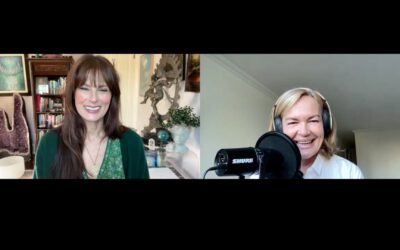
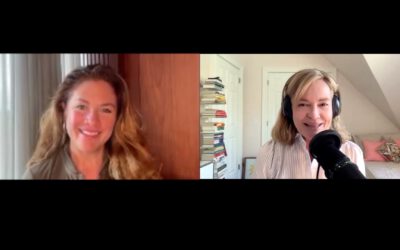
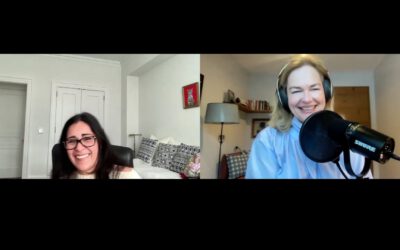

0 Comments